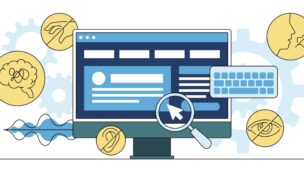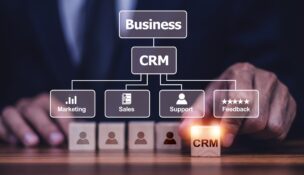Unmasking Addiction in the Workplace
An investment in health supports all employees and helps the business increase productivity
Cortland Mathers-Suter //October 30, 2018//


Unmasking Addiction in the Workplace
An investment in health supports all employees and helps the business increase productivity
Cortland Mathers-Suter //October 30, 2018//

Halloween is a generally fun holiday where many don masks and pretend we are someone or something we are not. This is, of course, a commonplace activity that most of us never question. But what if this masking of one's true self was something you were compelled to do year-round? As founder and COO of addiction recovery centers in Colorado, and as a recovering addict, I am lucky that I can be open about my personal struggle with addiction in my place of work. Yet, I am an anomaly. Most addicts, even those in recovery, feel they must hide behind the mask of an alternative identity in the workplace. Outwardly these individuals, who may well be your coworker, boss or friend, may seem like they have their life together – good job, fancy car, a perfect family at home. But behind this mask, many are struggling mightily.
According to the National Institutes of Health, one in 10 Americans is currently struggling with a drug-use disorder or has had past struggles with a drug-use disorder; one in every 13 adults abuse alcohol or struggle with alcoholism. Further, the National Council on Alcoholism and Drug Dependence (NCADD) reports 70 percent of the estimated 14.8 million Americans who use illegal drugs are employed. In fact, according to a 2017 Pew Research Center survey, nearly half of all Americans know a friend or family member who has struggled with addiction. These individuals spread across all races, ages, religions and political beliefs. Chances are someone in your workplace is struggling with addiction, too, whether you realize it or not.
With substance use and addiction often comes denial and with denial comes masks and fear. Outwardly it may be difficult to tell that the person in the next cube or the corner office is struggling. From a work perspective, they compete their work, maybe they are even high performing or up for promotion. Friends and family may notice some social drinking, on occasion too much, but may brush it off as nothing to worry about. In reality, the addict may be masking the truth, even from themselves. Many addicts tell themselves, “I could drink less if I wanted too,” or “This is just my way to relax; I’m no junkie.”
For many who struggle with addiction, fear and shame stemming from stigma surrounding addiction forces them to hide their struggles, especially in the workplace where they may worry they will lose their job, be shunned by coworkers or leadership. However, wearing the mask and hiding the problem is rarely a solution. Often, addiction stems from a mental health issue or trauma that can be resolved with appropriate treatment and therapy. Addiction should be thought of as an illness that requires treatment, not a problem or sign of weakness. As an employer, it is important to train yourself and your team on the symptoms, causes and treatments of addiction.
A few indicators that a team member might be struggling are:
- Personality changes and mood swings including irritability, defensiveness and increased isolation
- Changes in physical appearance such as poor skin, soiled clothes and reduced attention to hygiene, or apparent fatigue and slurred speech
- Diminished productivity including tardiness, frequent “sick days,” missed deadlines, lack of follow through and slips in performance on tasks and projects
One of the best ways to support employees through difficult times is to create an Employee Assistance Program (EAP), a national initiative of the NCADD. EAPs provide employees with a safe place to receive counseling services, information and emotional support for a wide variety of personal issues including addiction. As part of the EAP, counselors can help individuals identify the problem, provide appropriate counseling and direct them toward outside resources such as a treatment center, Alcoholics Anonymous or Narcotics Anonymous to aid in recovery.
Implementing an EAP supports all employees who may need healthy living assistance, as well as those who may be working through addiction. Though EAP’s are a fantastic resource, they are not always realistic for all types of companies. As a result, it is often the human resources department that must provide the support an EAP would otherwise offer. It is hugely important, for this reason, that HR always has qualified and experienced professionals available, because when a company lacks an EAP and an available HR professional, a workplace can become a truly impossible place for an addict – particularly one in early recovery – to manage.
Regardless of how it’s put together, an investment in health supports all employees, while at the same time helping the business increase productivity and the bottom line. Though you may not be able to unmask the addict in your workplace, providing your colleague with a safe and anonymous place to seek support will help that individual begin to unmask themselves.
Cortland Mathers-Suter is the managing director of AspenRidge Recovery, an addiction treatment center with locations in Lakewood and Fort Collins.

























